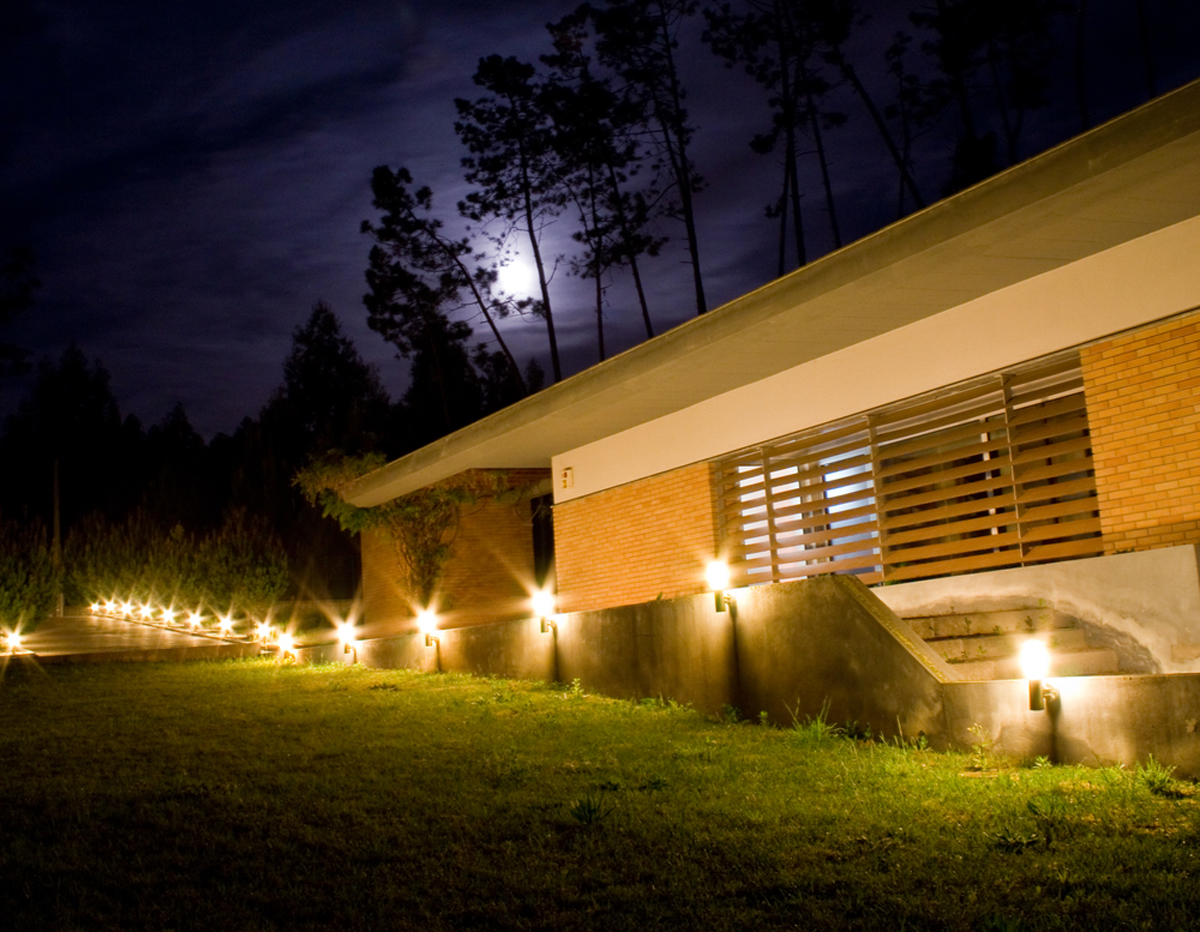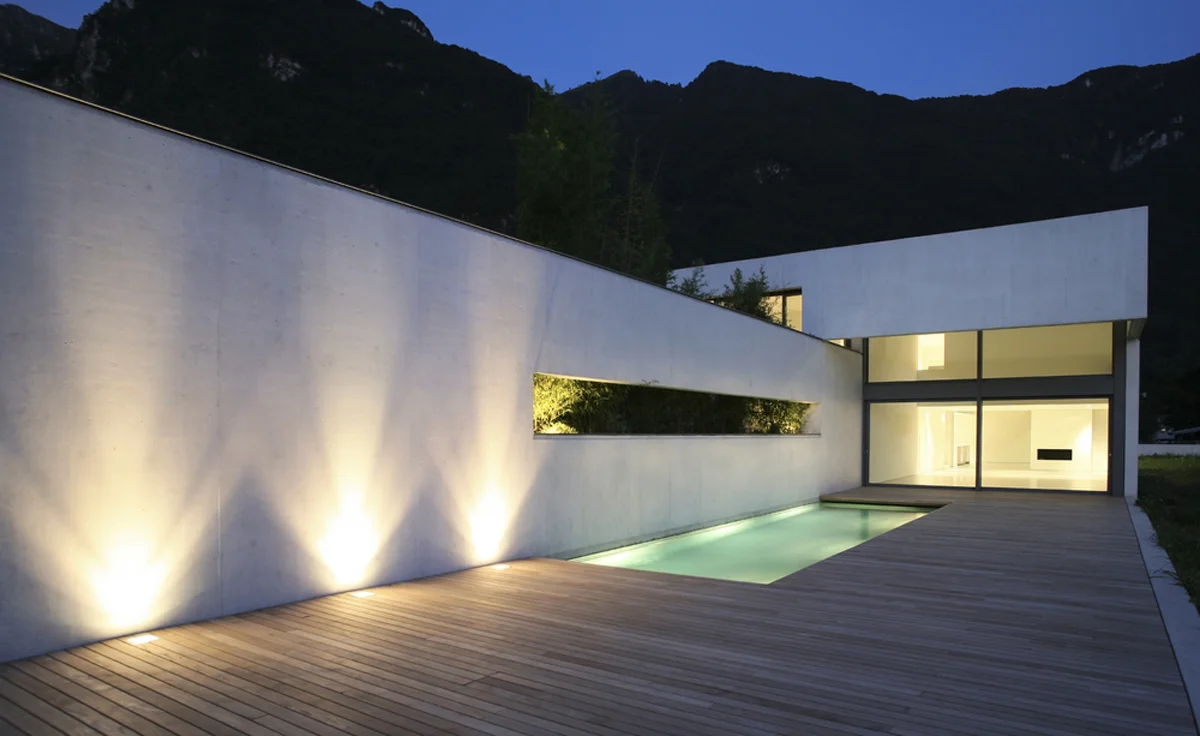Walkway lighting 101

Summer is finally here and we are spending a lot more time outdoors.I’m writing this sitting on our deck, which is our favorite “room” of the house during the summer.
After the snow and ice is gone it’s of course also time to catch up on projects around the yard. One of them is landscape lighting.
If facing an entire landscape lighting project seems overwhelming to you it’s a good idea to start small with a job that is manageable, but has great impact, like lighting the walkway to your front door.
Just like we see it indoors, good outdoor lighting makes a huge difference in how we feel about a place: Does it appear attractive, inviting and well-kept or sinister and neglected?
Good outdoor lighting not only adds curb appeal and increases the home value, but it makes us feel comfortable and secure. It is welcoming to us as well as our guests, and at the same time a deterrent to uninvited guests. You can definitely add a look of class to your home by doing your lighting right.
So, to get started on this lighting project, stand in front of your house at night facing it and think about the impression you get. The warm lights from the windows probably add an inviting glow, which is definitely the case when you are entertaining and the house is lit up, but this is most likely not sufficient light for the walkway or the stairs. Now picture yourself coming home in the dark without interior lights. What would you need to show you the way?
There is of course the flood light with a motion sensor that instantaneously changes the surroundings from dark to prison camp brightness when triggered by a cat or a moving branch, but I prefer not to be blinded by those at the front door.
Floodlights have their place for safety and for those bump-in-the-night scary moments. You can place some around the house inconspicuously under the eaves and have them on a switch strategically placed in the house. (I’d actually like a switch next to my bed, but didn’t think of it when they wired our house.) This type of lighting definitely doesn't add anything to the curb appeal or character of the house, but at best makes it look bland and boring. Motion detectors don’t have to cause you to get blinded. They can be purchased separately and added to decorative wall sconces for the front door.
Path lights work well for illuminating the walkway up to the front door and for negotiating uneven terrain and steps safely.
There are a few ways to approach the lighting design for a walkway and the layout of the path lights. Generally we recommend an approach where the design is as inconspicuous and “natural” as possible. You almost want the effect to be just like a path dappled in sunlight. The secret is not to aim for overall brightness, but harmonious transitions between light and shadows. Too many landscape lights lined up in a row gives the dreaded "runway effect". Not a good thing.
A little light goes a long way outdoors, so it is important not to use too high-powered exterior fixtures. You want to avoid sharp contrasts on your walkway, since they act almost like trip hazards. Don’t place your path lights too closely together, and then again, don’t allow expanses of darkness along the path. Avoid glare. Lamps that shine upward should have a purpose, as in something to illuminate, not shine aimlessly into the sky causing glare and light pollution. For a couple of reasons it is a good idea to supplement your path lights with illumination of trees, bushes or architectural features close to the walkway. First it highlights something special about your home, second it adds light that fills in between the path lights.
As an added bonus landscape lighting expands your interior space visually. We have so many clients with beautiful homes, tall ceilings, lots of huge windows and grandiose views. They enjoy their sunlit grand rooms during the day, but complain about the huge expanses of black glass at nighttime. We always recommend outdoor illumination of a sculpture, a fountain, trees or bushes to add visual interest and a feel of comfort. While we use a warmer color temperature (2700K) indoors, especially in homes with lots of wood, texture and softer tones, we use much cooler color temperatures for landscape lighting. Plants look sickly when they are seen under too yellow a light.
Path lights are available with practically all lamp (bulb) types. We have experimented a lot with different types over the years, from solid incandescent Labrador-proof bollards, halogen spots and path lights to the cheap 5-for-$29 solar lights. They all work, and of course all have their pros and cons. If I’d start from scratch today and only had a smallish project I’d invest in high quality LED lights. I’d just want to be done once and for all and let my landscaping mature without interruption.
Below: A collection of outdoor lighting, some good - and a few bad ones not to try at home!























